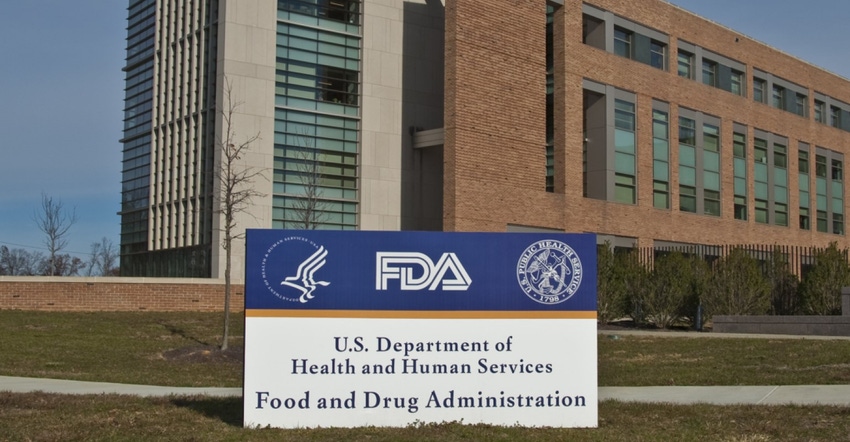CRN, NPA Call FDAs Position on Vinpocetine Unprecedented
Citing the absence of safety concerns, industry trade associations questioned FDA’s tentative conclusion to reverse its longstanding position on vinpocetine, an ingredient that is sold in hundreds of supplement brands.

FDA’s new position regarding the ingredient vinpocetine is an “unprecedented" one that could have serious consequences for the dietary supplement industry, and it’s inappropriate given the absence of safety concerns, the Council for Responsible Nutrition (CRN) and the Natural Products Association (NPA) asserted in comments filed Monday with the agency.
FDA’s move is an unprecedented one “that threatens to undermine the dietary supplement industry’s confidence in the NDI [new dietary ingredient] notification process," declared CRN, a trade association representing dietary supplement and functional food manufacturers and ingredient suppliers.
In a Sept. 7, 2016 Federal Register notice, FDA tentatively concluded vinpocetine does not qualify as a dietary ingredient because it is a “synthetic compound." Vinpocetine is reportedly sold in hundreds of products and has been on the dietary supplement market for about 20 years.
In written comments filed with FDA—the final day of a 60-day comment period—Duffy MacKay of CRN questioned FDA’s decision to revisit the ingredient since the agency hadn’t raised any safety concerns with vinpocetine or “offered any new information about the ingredient that was not available when it received the first NDI notification for vinpocetine nearly 20 years ago."
“In addition to being bad policy, the notice is legally deficient in several respects," wrote MacKay, CRN’s senior vice president of scientific and regulatory affairs, in a five-page letter to the agency. For instance, he noted “FDA determined repeatedly" vinpocetine was a dietary ingredient by accepting NDI notifications without objecting to them. The agency received five separate NDI notifications beginning in 1997, a fact the Federal Register notice acknowledged.
“Although FDA briefly refers to this history in a footnote, it does not directly acknowledge the regulatory consequences of its prior actions," MacKay said.
What’s more, he wrote, FDA has not provided an adequate “explanation for why it is changing course now" or sufficiently considered the industry’s interests. “Hundreds of products contain vinpocetine, and such products have been marketed for nearly 20 years," facts FDA doesn’t address, said MacKay, who argued the agency’s action was “arbitrary and capricious."
FDA’s tentative conclusion warrants review by the White House’s Office of Management and Budget (OMB) given the number of brands selling vinpocetine, but FDA failed to submit an economic impact analysis to OMB, said Daniel Fabricant, Ph.D., executive director and CEO of NPA, a trade organization representing interests in foods, dietary supplements and health/beauty aids. Referencing the Natural Medicines Comprehensive Database, Fabricant noted more than 377 brands of supplements contain the ingredient.
Fabricant, FDA’s former director of the Division of Dietary Supplement Programs, described as “unprecedented" FDA’s position concerning vinpocetine “in the absence of any safety concern."
The 1994 Dietary Supplement Health and Education Act (DSHEA) “provides a regulatory framework for banning and withdrawing dietary ingredients from the market based upon safety concerns," wrote Fabricant in NPA’s second round of comments filed Monday with the agency. “In the absence of any risk of illness or hazard to public health, this administrative proceeding creates a new pathway to place a ban on acknowledged ingredients and introduces considerable uncertainty and confusion as to what steps manufacturers must comply with in order to sell safe products."
CRN maintained FDA’s new position on vinpocetine could undermine its objectives. In draft NDI guidance that FDA published in August, the agency encouraged companies to submit NDI notifications even when they are not required by law, the letter noted.
“Companies now may be less inclined to participate voluntarily in the NDI notification process if the agency may simply reverse an acknowledgement at any time—for example, when it receives pressure from a member of Congress," reasoned MacKay, who referenced a 2015 letter that Sen. Claire McCaskill (D-Missouri) sent to FDA regarding vinpocetine. “Such action by FDA also creates unpredictability in the marketplace, thereby discouraging innovation and new product development."
As INSIDER reported last week, hundreds of consumers have urged FDA in written comments to keep vinpocetine supplements on the market. The ingredient, several comments indicated, is beneficial for maintaining brain health as Americans get older.
About the Author(s)
You May Also Like






.png?width=800&auto=webp&quality=80&disable=upscale)